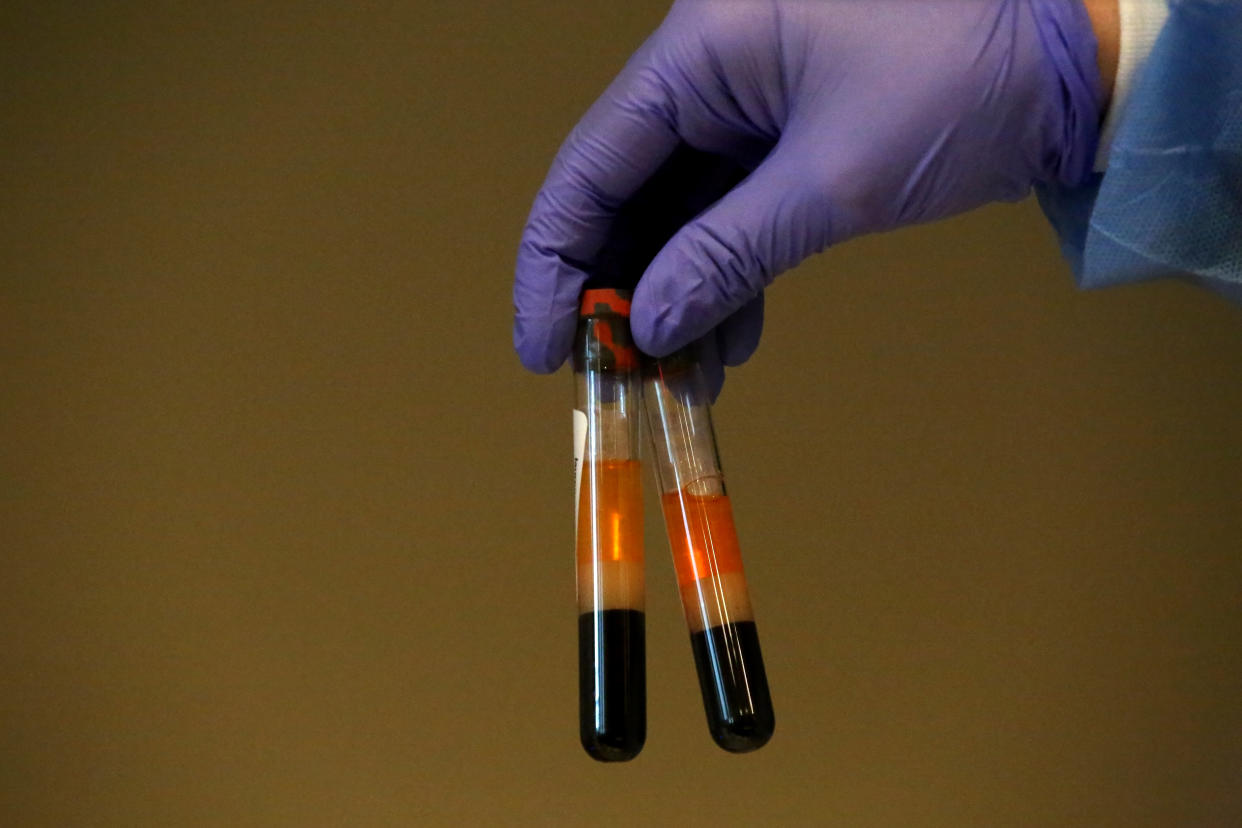Documents reveal Trump administration planning to use New York City for 'Restore America' coronavirus antibody testing project
WASHINGTON — The Trump administration is planning to launch a pilot program that will involve widespread testing of New York City residents for antibodies to the coronavirus, according to documents reviewed by Yahoo News.
Existence of that soon-to-be-launched program, called “Restore America,” was discussed in an internal Trump administration document produced by the Department of Homeland Security on April 25 and shared with other departments within the federal government that are working on pandemic response.
The Federal Emergency Management Agency “is coordinating a White House request for NYC to be the ‘Restore America’ pilot city for serology and phlebotomy screening,” the document says. No other details are provided.
Phlebotomy is a method of drawing blood from a patient, usually for diagnostic purposes.
The following day, April 26, a FEMA interagency document again referenced the pilot program, noting it would be run by the White House and the Department of Health and Human Services. The White House and HHS, the document said, would work on “initiating the design and execution of a serology testing pilot in NYC.”

The presence of antibodies — proteins produced by the body to fight off disease — would indicate that a person has survived a bout with COVID-19, the respiratory disease caused by the coronavirus. Because the majority of those infected experience mild COVID-19 symptoms, or even no symptoms at all, the antibody tests could be a useful indicator of just how many people have contracted the disease.
And since antibodies confer immunity, people who have coronavirus antibodies could presumably resume their lives with less concern than those who have not yet been infected. Even more important, they could donate their blood so that those antibodies could be harvested and used to treat COVID-19 patients.
There are more than 100 antibody tests currently on the U.S. market, but the overwhelming majority have received no scrutiny whatsoever from the Food and Drug Administration. That means their accuracy could be suspect, leading people to potentially believe that they have immunity to the coronavirus, when they have in fact never been infected by the pathogen. A different type of error could lead people to believe that they don’t have such antibodies, when in fact they do.
For a pilot program in New York — which has been the epicenter of the outbreak in the U.S. — federal authorities would almost certainly use a test manufactured by a large commercial laboratory. But as of Monday evening, virtually no details about the program were available.
“We’re currently in the midst of discussions with the CDC about antibody testing on a large scale and will share more information when available,” said a spokesperson for New York Mayor Bill de Blasio, using an acronym for the Centers for Disease Control and Prevention.
Gov. Andrew Cuomo’s office did not respond to a request for comment. The White House did not respond to multiple requests for comment.
A spokesperson for FEMA said the agency would not comment on a “leaked” document, while a spokesperson for Health and Human Services said on Monday the department “will have more information to share on the Restore America program tomorrow.”
With additional reporting by Hunter Walker.
_____
Click here for the latest coronavirus news and updates. According to experts, people over 60 and those who are immunocompromised continue to be the most at risk. If you have questions, please refer to the CDC’s and WHO’s resource guides.
Read more from Yahoo News:


